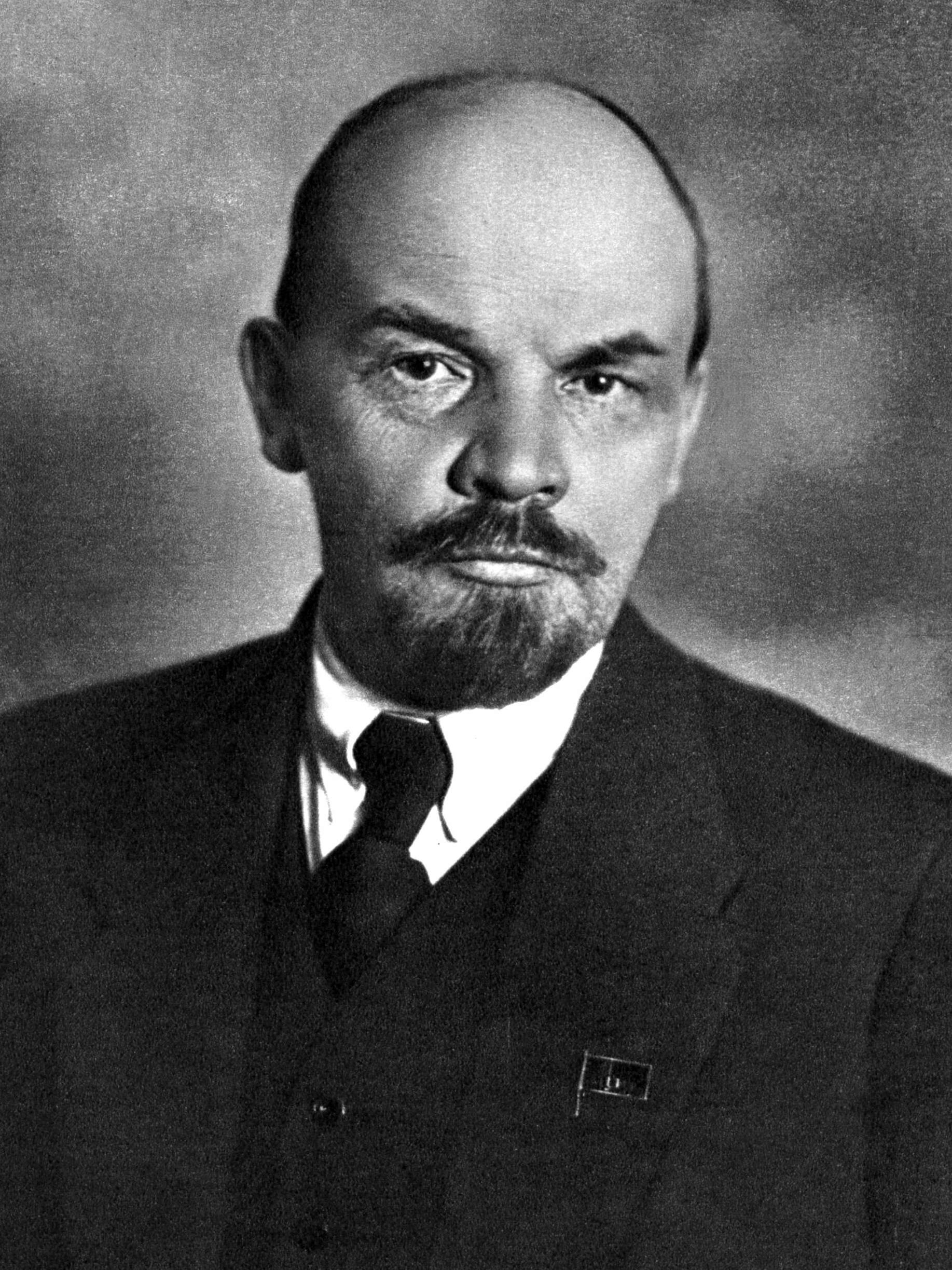Vladimir Lenin
 Vladimir Ilyich Ulyanov .}} ( 187021 January 1924), better known as Vladimir Lenin,; .}} was a Russian revolutionary, politician and political theorist. He was the first head of government of Soviet Russia from 1917 until his death in 1924, and of the Soviet Union from 1922 until his death. As the founder and leader of the Bolsheviks, Lenin led the October Revolution which established the world's first socialist state. His government won the Russian Civil War and created a one-party state under the Communist Party. Ideologically a Marxist, his developments to the ideology are called Leninism.
Vladimir Ilyich Ulyanov .}} ( 187021 January 1924), better known as Vladimir Lenin,; .}} was a Russian revolutionary, politician and political theorist. He was the first head of government of Soviet Russia from 1917 until his death in 1924, and of the Soviet Union from 1922 until his death. As the founder and leader of the Bolsheviks, Lenin led the October Revolution which established the world's first socialist state. His government won the Russian Civil War and created a one-party state under the Communist Party. Ideologically a Marxist, his developments to the ideology are called Leninism.Born into a middle-class family in Simbirsk in the Russian Empire, Lenin embraced revolutionary socialist politics after his brother was executed in 1887 for plotting to assassinate the tsar. He was expelled from Kazan Imperial University for participating in student protests, and earned a law degree before moving to Saint Petersburg in 1893 and becoming a prominent Marxist activist. In 1897, Lenin was arrested and exiled to Siberia for three years, after which he moved to Western Europe and became a leading figure in the Russian Social Democratic Labour Party. In 1903, the party split between Lenin's Bolshevik faction and the Mensheviks, with Lenin advocating for a vanguard party to lead the proletariat in overthrowing capitalism and establishing socialism. Lenin briefly returned to Russia during the Revolution of 1905.
During the First World War he campaigned for its transformation into a Europe-wide proletarian revolution. After the February Revolution of 1917 ousted Tsar Nicholas II, Lenin returned to Russia and played a leading role in the October Revolution, in which the Bolsheviks overthrew the Provisional Government.
Lenin's government abolished private ownership of land, nationalised major industry and banks, withdrew from the war by signing the Treaty of Brest-Litovsk, and promoted world revolution through the Communist International. The Bolsheviks initially shared power with the Left Socialist Revolutionaries, but during the Russian Civil War centralised power in the Communist Party and suppressed opposition in the Red Terror, in which tens of thousands were killed or imprisoned. Responding to famine and popular uprisings, Lenin reversed his policy of war communism in 1921 and stabilised the economy with the New Economic Policy. The Red Army defeated numerous anti-Bolshevik and separatist armies in the civil war, after which some of the non-Russian nations which had broken away from the empire were reunited in the Soviet Union in 1922; others, notably Poland, gained independence. Lenin suffered three debilitating strokes in 1922 and 1923 before his death in 1924, beginning a power struggle which ended in Joseph Stalin's rise to power.
Lenin was the posthumous subject of a pervasive personality cult within the Soviet Union until its dissolution in 1991. Under Stalin, he became an ideological figurehead of Marxism–Leninism and a prominent influence over the international communist movement. A controversial and highly divisive figure, Lenin is praised by his supporters for establishing a revolutionary government which took steps towards socialism, while his critics accuse him of establishing a dictatorship which oversaw mass killings and political repression against the anti-revolution forces. Today, he is widely considered one of the most significant and influential figures of the 20th century. Provided by Wikipedia
